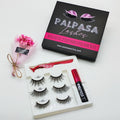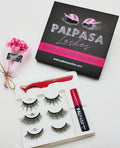Best Ways to Treat your Acne Naturally
Natural Skin Care Products | Anti-Ageing | Face Creams | Black Head Removers |Face Cleansers | Cleansers & Exfoliators | Korean Skin Care

Acne is an embarrassing and burdening problem for almost half of the woman who book their time in the treatment room. The most frequently asked questions is What is the main cause of Acne? The answer is Acne develops when sebum — an oily substance that lubricates your hair and skin — and dead skin cells plug hair follicles.
It primarily affects skin with a relatively high number of oil glands, including the face, upper part of the chest, and back.
Genetics is the primary cause of acne in 80% of cases. The role of diet and cigarette smoking in the condition is unclear, and neither cleanliness nor exposure to sunlight appears to play a part
Treatments for acne are available, including lifestyle changes, medications, and medical procedures. Eating fewer simple carbohydrates such as sugar may also minimize the condition. But here we won't talk about products or creams to use or some special and expensive meditations to treat acne, we will give you some effective and safe natural ways to Get rid of your pimples.
1. Aloe Vera For Acne
Aloe Vera contains antioxidants, enzymes, Vitamins A and C, and it is highly anti-inflammatory. It can help treat burns, acne and dry skin.
FAQs
How long does it take for aloe vera to work on acne?
Often, you have to apply compounds like aloe vera to the skin on a twice-daily (or more) basis for several weeks or months to see an improvement in acne scarring. That's because skin cell turnover can take 28 days or more (slower as you age). As a result, you may need to apply aloe vera regularly.
Can aloe vera worsen acne?
So far, it doesn't seem aloe does much more than reduce redness and inflammation. ... But acne isn't caused by inflammation alone. It's also caused by a buildup of dead skin cells, over-active oil glands, hormones, and even genetics. Aloe vera won't do anything for these factors.
What does aloe vera do for acne?
There's a good reason that aloe vera is used for so many skin problems—it has anti-inflammatory properties. That means that aloe vera can help reduce swelling. Putting aloe vera on a red, swollen pimple can help reduce tenderness and pain. Aloe also has wound healing effects, so it may help heal open acne blemishes.
2. Nutmeg
The stimulating properties of Nutmeg will certainly wake up dead skin cells and help those no-so-fine lines around your mouth fade. Nutmeg is known to have curative properties that heal scars caused by everything from acne to sun spots. ... Nutmeg can also help out with dry skin, because it's extremely moisturizing and exfoliation.
FAQs
Is nutmeg good for pimples?
Yes, It helps shrink your pores and ensures a normal and healthy skin. Moreover, it has anti-inflammatory and anti-bacterial properties that help prevent acne.
How do you use nutmeg for pigmentation?
Mix equal parts of nutmeg powder and cinnamon powder with raw honey to get a smooth consistency. Apply it on your face and let it sit for 15-20 minutes. If you are going for spot treatment then allow it for 1 hour or more. Wash it off with cold water.
What can Nutmeg be used for?
Nutmeg and mace are applied to the skin to kill pain, especially pain caused by achy joints (rheumatism), mouth sores, and toothache. In foods, nutmeg and mace are used as spices and flavorings. In manufacturing, nutmeg oil is used as a fragrance in soaps and cosmetics.
3. Ayurveda for Skin Care
Toxins can manifest in the skin as inflammation, blemishes and acne Ayurveda eliminates these problems by detoxifying and cleansing from the inside out. Ayurvedic treatments, and skin remedies can restore a clear and beautiful complexion.
Make a powdered mixture of coriander seeds, fennel, basil, turmeric, and Amla in equal parts. All of these seeds and herbs are packed with antioxidants that kill inflammation beneath the skin. Take half teaspoon of this powder 15 minutes before lunch and dinner, and wash it down with hot water.
4. Juice of 3 lemons
Take half a lemon. Now rub this half-cut lemon on your pimples. If you feel a prick, don't panic - because it shows that this recipe is working. The citric acid present in the lemon kills the bacteria that produce acne. Remember that after rubbing the face with lemon, wash it with water. Apply sunscreen before going out - because citric acid can increase the damage done to your face by sun rays.
Take half a lemon. Now rub this half-cut lemon on your pimples. If you feel a prick, don't panic - because it shows that this recipe is working. The citric acid present in the lemon kills the bacteria that produce acne. Remember that after rubbing the face with lemon, wash it with water. Apply sunscreen before going out - because citric acid can increase the damage done to your face by sun rays.
5. Apple Cider Vinegar For Acne
Apple cider vinegar has various healthful properties, including antimicrobial and antioxidant effects. What's more, evidence suggests it may offer health benefits, such as aiding weight loss, reducing cholesterol, lowering blood sugar levels, and improving the symptoms of diabetes.
If you're using apple cider vinegar as an acne treatment, you probably won't see results overnight. A full skin-cell turnover takes about four to six weeks; so give it at least that much time for the benefits to take place.
FAQs
How do you use apple cider vinegar for acne?
Mix 1 part apple cider vinegar with 3 three parts water (if you have sensitive skin, you may want to use more water). Cleanse your face with mild face wash and pat dry. Using a cotton ball, gently apply the mixture to the affected skin. Let sit for 5–20 seconds, rinse with water and pat dry.
Can I leave apple cider vinegar on my face overnight?
Apple cider vinegar can do wonders for your skin. For an all-natural astringent, apply a washcloth soaked in diluted apple cider vinegar to your face. ... Plus, a dab of diluted apple cider vinegar left overnight on age spots, pimples or acne scars will help reduce their appearance.
Can Apple cider vinegar make acne worse?
Apple cider vinegar contains organic acids that may help kill the bacteria that cause acne. ... Furthermore, applying apple cider vinegar directly to the skin can cause skin damage and burns, especially for those with sensitive skin or open wounds. Because of this, it may cause more harm than good in individuals with acne.
Should you moisturize after using apple cider vinegar?
After the toner has dried, apply your regular moisturizer. Tip: If you want to further experiment with all natural skin care, try using organic coconut oil for your moisturizer.






